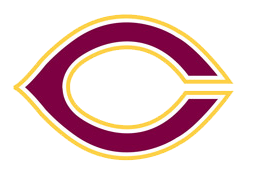This neurochemistry capstone class has done a wonderful job of summing up my academic experience at Concordia. The goal of Concordia’s liberal arts education is to instill a love for learning and to cultivate examination of your cultural, physical, and spiritual self. Concordia also aims to produce students who are actively engaged in the world’s affairs. I believe this course has effectively accomplished these goals. Before taking this class, I was intimidated at the idea of participating in a class based off student-led discussion. This class style is unlike any other class that I have taken in college. The typical class structure of passively taking lecture notes and taking tests that measure your ability to memorize and regurgitate information gathered from lecture allows students to be disengaged from the content of the course. When students are active participators in class and expected to teach other students, they are more engaged in the content of the course.
I think one of the biggest issues with science in today’s society is a lack of communication. Quality science could have such a larger impact on the world if more science was better communicated and shared with the public. I believe this is partially caused by the class structure of a typical science class. A structure which involves professor-led lectures and tests that grade your ability to memorize lecture notes. These classrooms do not promote active learning that engages students in the coursework. These scientists, in turn, never gain skills necessary to properly communicate scientifically in the scientific world, and to the general public, which is arguably more important. The ability to convey important scientific knowledge to the non-scientific public is one of the most valuable skills a scientist can have.
This neurochemistry class helped us practice the skills become effective scientific communicators in the future. I think the responsibility of teaching others in the class about a certain topic motivates students to learn their topic more in depth so they are able to provide useful information to the rest of the class. This class doesn’t allow students to sit back and passively learn the material; it forces them to become engaged in the class content and actively learn information to help them understand class topics. I think teamwork also plays a part in the success of this class. When the goal of the whole class is to understand everything about a certain article, every student feels responsible to contribute information that can assist the class in understanding the article as a whole. I believe this motivation to help the whole class understand the certain articles is the reason this class is so successful at engaging students in their own learning.
This class was also valuable because it allowed the students to discuss important issues present in society today and evaluate the ways in which science can help or cause these problems. This aspect of the class enabled us to become more actively engaged in the world and integrate our scientific knowledge into the potential solutions of national and global issues. In this class, I not only learned a great deal about neurochemistry, but also how much is unknown about this area of study with respect to the causation of different diseases of the brain. I have also become a more effective scientific communicator, which will help me in all aspects of my future. Perhaps most importantly though, this course taught me how to be engaged in my education and become an active learner in the classroom.
Capstone Experience
